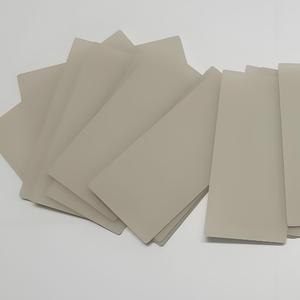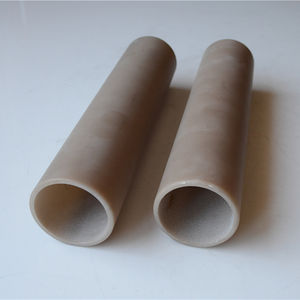Intro to Boron Nitride Ceramics: A Distinct Class of High-Tech Products
Boron nitride ceramic items have emerged as a vital class of innovative porcelains, distinguished by their special mix of thermal conductivity, electrical insulation, chemical inertness, and mechanical security at severe temperatures. Unlike conventional oxide or carbide-based ceramics, boron nitride (BN) exists in multiple crystalline kinds– most significantly hexagonal (h-BN), cubic (c-BN), and wurtzite (w-BN)– each using unique residential properties suited for specialized applications. From high-temperature crucibles to semiconductor components and quantum devices, BN ceramics are redefining efficiency borders across markets ranging from aerospace to microelectronics.
(Boron Nitride Ceramic)
Architectural Properties and Polymorphic Variants of Boron Nitride Ceramics
The convenience of boron nitride stems from its ability to embrace different crystal frameworks, each with tailored physical and chemical qualities. Hexagonal boron nitride (h-BN), often described as “white graphite,” features a layered structure that conveys exceptional lubricity, low friction, and high thermal conductivity while preserving electric insulation. Cubic boron nitride (c-BN), 2nd just to diamond in firmness, is commonly made use of in cutting devices and unpleasant applications. Wurtzite BN (w-BN) displays piezoelectric residential or commercial properties, making it suitable for high-pressure sensing units and optoelectronic gadgets. These polymorphs make it possible for the style of highly specialized ceramic products adjusted to requiring commercial environments.
Manufacturing Techniques and Product Obstacles
Producing high-quality boron nitride ceramic items entails exact powder synthesis, shaping, and sintering strategies. h-BN is generally produced via warm pushing or trigger plasma sintering, while c-BN requires high-pressure, high-temperature (HPHT) methods to stabilize its cubic stage. Achieving dense, defect-free BN ceramics remains an obstacle as a result of the product’s naturally reduced self-diffusivity and tendency toward porosity. Additives such as yttria or alumina are usually introduced to boost densification without compromising thermal or electric efficiency. Continuous study focuses on additive production, nanostructuring, and hybrid composites to increase the range of practical geometries and functionalities.
Applications in Electronic Devices, Semiconductors, and Thermal Monitoring Systems
Among the most significant roles of boron nitride ceramic products depends on the electronic devices and semiconductor fields, where thermal management and electrical isolation are paramount. h-BN substratums are progressively used in power components, RF parts, and LED plans due to their remarkable thermal conductivity and dielectric residential or commercial properties. In semiconductor crystal development processes– such as Czochralski drawing or directional solidification– BN crucibles ensure contamination-free thaw handling. In addition, thin-film BN layers serve as diffusion obstacles and passivation coverings in incorporated circuits, boosting tool reliability under severe operating problems.
Usage in Aerospace, Protection, and Nuclear Technologies
Boron nitride ceramic items likewise play a crucial duty in aerospace, protection, and nuclear energy systems. Their neutron-absorbing capacities make them ideal for control rods and protecting materials in nuclear reactors. In hypersonic trip and space expedition, BN composites offer light-weight, thermally secure elements efficient in holding up against re-entry temperatures exceeding 2000 ° C. Military applications include radar-transparent radomes, projectile nose cones, and armor-piercing penetrators made from c-BN-reinforced porcelains. As nationwide safety and area markets evolve, require for BN-based products is anticipated to grow considerably.
Innovations in Mechanical and Commercial Handling Devices
( Boron Nitride Ceramic)
Cubic boron nitride (c-BN) has changed machining and metalworking markets as a result of its remarkable firmness and thermal stability. c-BN cutting tools exceed standard tungsten carbide and also some ruby devices when machining ferrous alloys, as they do not chemically react with iron at heats. This makes them essential in vehicle and aerospace production, where precision and device longevity are essential. Innovations in layer technologies and composite device styles remain to push the restrictions of c-BN’s performance, enabling quicker machining speeds and prolonged device life in high-volume manufacturing settings.
Environmental and Economic Considerations
In spite of their high-performance advantages, boron nitride ceramic items encounter economic and ecological challenges. Production costs continue to be elevated due to complicated synthesis routes and restricted economic climates of range compared to even more well-known technological ceramics like silicon nitride or aluminum oxide. Recycling and end-of-life disposal strategies are still in early growth, though passion in round production designs is growing. Scientists are checking out alternate basic material resources, bio-derived binders, and reusable mold modern technologies to lower the environmental impact of BN ceramic production while boosting price competitiveness.
Market Patterns and Global Industry Expansion
The international market for boron nitride ceramic items is experiencing steady development, driven by enhancing demand from the semiconductor, protection, and tidy energy sectors. Asia-Pacific leads in usage, specifically in China and Japan, where investments in next-generation electronics and photovoltaics are speeding up. The United States And Canada and Europe adhere to closely, sustained by government-backed R&D programs in quantum computer, blend energy, and hypersonic automobile development. Key players are broadening manufacturing capability, creating strategic collaborations, and purchasing electronic procedure optimization to satisfy climbing international need for high-performance BN ceramic services.
Future Prospects: Combination with Smart Production and Advanced Materials Science
Looking in advance, boron nitride ceramic products are poised to play a main duty in the advancement of clever manufacturing, AI-driven materials engineering, and next-generation electronic systems. Developments in additive production are allowing the fabrication of complicated BN geometries formerly unattainable via traditional approaches. Combination with IoT-enabled sensing units and predictive maintenance platforms will boost real-time tracking of BN elements in high-stress atmospheres. Additionally, emerging research study right into 2D BN nanosheets, heterostructures, and quantum-confined systems promises breakthroughs in optoelectronics, spintronics, and ultra-fast computing, additional sealing BN ceramics as foundational materials for future technical technology.
Provider
Advanced Ceramics founded on October 17, 2012, is a high-tech enterprise committed to the research and development, production, processing, sales and technical services of ceramic relative materials and products. Our products includes but not limited to Boron Carbide Ceramic Products, Boron Nitride Ceramic Products, Silicon Carbide Ceramic Products, Silicon Nitride Ceramic Products, Zirconium Dioxide Ceramic Products, etc. If you are interested, please feel free to contact us.(nanotrun@yahoo.com)
Tags: boron nitride ceramic, ceramic boron nitride, machining boron nitride
All articles and pictures are from the Internet. If there are any copyright issues, please contact us in time to delete.
Inquiry us


